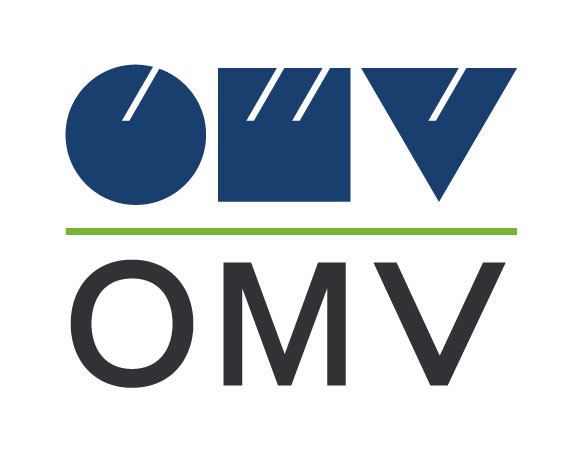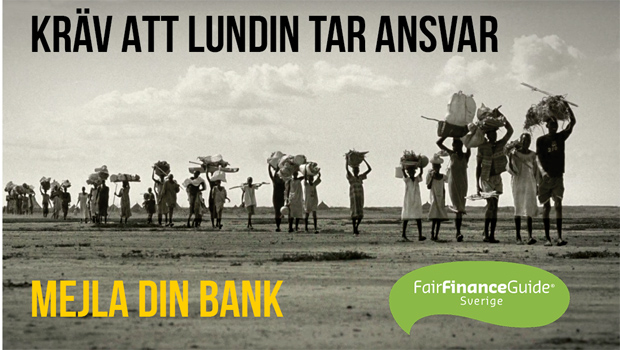Prosecutor requested to open a criminal investigation
The Austrian Centre for the Enforcement of Human Rights International (CEHRI) and the Duitch peace movement PAX have submitted on 23 April a criminal complaint against former senior executives of OMV AG for aiding and abetting war crimes. They are requesting the Austrian prosecution to open a criminal investigation. The Austrian company OMV was a business partner of the Swedish company Lundin in Sudan. Two former executives of Lundin are on trial in Stockholm on charges of complicity in war crimes when managing the Consortium in which OMV participated. CEHRI and PAX claim that the management of OMV contributed to the Consortium’s criminal conduct in Sudan.
OMV is the largest company of Austria with a market capitalisation of $14,4 billion. The Government of Austria holds 31.5% of its shares and the Government of Abu Dhabi 24.9%. OMV made a profit of $55 million over the sale of its Sudanese assets in 2003.
The two organisations published the folowing statement on 7 May 2024:
OMV AG executives accused of complicity in war crimes
The Austrian Centre for the Enforcement of Human Rights International (CEHRI), in collaboration with the Dutch peace organization PAX, has submitted a criminal complaint against former senior executives of OMV AG for aiding and abetting war crimes. The Austrian company OMV AG was a business partner of Swedish company Lundin Energy AB.[1] Two former executives of Lundin are presently standing trial in Stockholm. They have been charged with complicity in war crimes when managing the Consortium in which OMV AG participated. The victims of the war crimes that OMV AG allegedly has benefitted from, have been denied justice since 1999.
What is the submission about?
Senior executives OMV AG stands accused of aiding and abetting large scale war crimes in Sudan between 1999 and 2003, including systematic and deliberate targeting of civilians and the destruction of means necessary for survival. By the time OMV AG left Sudan, an estimated 12.000 people had died, 160.000 had been forcibly displaced, and their area of operation was thrown into abject poverty. All of this was known and documented at the time. OMV AG was allegedly aware that grave abuses were committed by the Government of Sudan to secure the operations of the Consortium that it participated in. OMV AG is accused of consciously accepting this in the pursuit of its economic interests, and of encouraging the criminal conduct of the Government of Sudan.
Why now?
On September 5th, 2023, the trial against Ian H. Lundin and Alex Schneiter, the former Chairman and CEO of Lundin, opened in Stockholm. They are charged with aiding and abetting grave international crimes in what is now South Sudan. The prosecutor has requested the court to forfeit criminal benefits from Lundin for a total of €220 million[2]. The evidence that the prosecutor has presented in court appears to show that OMV knowingly supported the suspects’ actions.
The Lundin trial is arguably the worst case of business involvement in human rights violations in modern history and the first time since Nuremberg that a listed company stands trail for war crimes. The court hearings will continue until Spring 2026. They are keenly followed by tens of thousands of survivors of war crimes in South Sudan, who have been seeking justice for over 25 years.
The suspects in the Lundin trial managed a Consortium that was 26% owned by OMV AG. OMV held around 26% of the vote in the highest decision making body, the Joint Operating Committee, that oversaw the strategy and the work plans and therewith had a blocking minority in all relevant decisions. The Committee was regularly briefed about the security situation and the Consortium’s response to it. OMV’s senior management never opposed or distanced themselves from the way the Consortium was managed.
OMV in Sudan
In 1997, in the middle of a civil war, OMV AG took a share in a jointly operated Consortium of international oil companies[3] that held the right to explore oil in Block 5A in Sudan, an area that was not under Government control. By then, the Government of Sudan had an established record of committing international crimes and a well-documented history of violently displacing people to make way for oil exploitation. Block 5A was controlled by competing militias, some supported by the Government, and some opposed to it. The start of the Consortium’s operations in 1998 set off a vicious war for control over the area. International crimes were committed on a large scale in what was essentially a military campaign by the Government of Sudan to control the oil fields. In 2001 and after, the Austrian Sudan Plattform called upon OMV AG to respect human rights and take responsibility for its impacts on the population, which the company did not do. OMV AG sold its Sudanese assets in 2003 with $50 million profit.
What is the Lundin war crimes trial about?
According to the Swedish prosecutor, the Consortium repeatedly requested and pressured the Government of Sudan to commit armed forces to protect its operations against hostile local militias, knowing that this would trigger or exacerbate armed conflict and that the forces fighting for the Government had a proven track record of committing war crimes. The Swedish prosecutor believes that the Consortium’s business decisions substantially contributed to the crimes of systematic targeting of civilians; indiscriminate bombing, killing and injuring civilians, destruction of private property including objects necessary for survival; abduction of civilians (enslavement), arson, pillage, and forced displacement, all on a massive scale and over several years. By 2003, an estimated 12.000 people had died and 160.000 were forcibly displaced in OMV’s concession.
What does OMV say?
OMV denies any wrongdoings and points out that Lundin, not OMV managed the day-to-day operations in Sudan.
And OMV’s commitment to human rights?
OMV AG supports the UN Guiding Principles on Business and Human Rights. These oblige companies to take all necessary efforts to know their contributions to adverse human rights impacts and provide effective remedy to people who have been harmed. OMV AG has been and continues to fail these basic requirements, effectively denying harmed people their right to remedy and reparation.
What about the victims?
OMV sold its Sudanese assets in 2003 and showed no interest in the people that it left behind. The whole area was deeply impoverished, many had lost beloved, and others had been driven off their land and would never return. These communities claim their right to remedy and reparation, including from OMV AG, for having brought war to their homeland and having knowingly benefitted from war crimes committed against them.
[1] The company started as International Petroleum Corporation and was later renamed Lundin Oil, Lundin Petroleum and Lundin Energy. We will refer to it as Lundin.
[2] In 2022, the multi-billion euro company Lundin Energy AB merged 98% of its valuable assets with Norwegian Aker BP ASA. The tiny remainder of the company, renamed Orrön Energy AB, was left with the massive Sudan liabilities.
[3] International Petroleum Corporation (IPC/Lundin, the operator, with a 40,375% stake,), Petronas (with 28,5%), OMV of Austria (26,125%), and the Sudanese state owned oil company Sudapet (5%).



